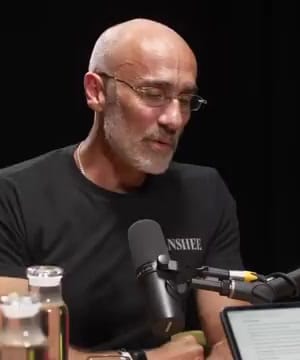Emotional DNA
Sources:
The concept of "Emotional DNA" refers to the idea that our emotions, and the patterns of behavior stemming from them, might be inherited or deeply rooted in our biology. It's not a commonly used scientific term, but it aligns with several discussions from experts about genetic and emotional influences:
-
Emotional Conditioning and Memory: Dr. Joe Dispenza explains that strong emotions linked to experiences can condition the body to live in that emotional state continuously. This ongoing emotional state can influence gene expression, potentially locking individuals into patterns of behavior and emotional responses, essentially creating a form of "emotional DNA" that impacts their state of being 1.
-
Genetics and Emotional Traits: Arthur Brooks notes that a significant portion of our personality traits, including our baseline happiness and disposition towards positive or negative emotions, are genetically influenced. These genetic predispositions can form an "emotional DNA," affecting how individuals inherently respond to life's events 2.
-
Emotional Influence and Evolution: Randolph Nesse discusses how emotions, such as grief, may have evolved due to their utility in certain contexts, influencing gene expression and subsequent behaviors. This suggests an evolutionary basis to our emotional patterns, which could be considered a form of "emotional DNA" that benefits our genes more than our conscious selves 3.
-
Personalized Medicine and Genetics: Mark Hyman and George Papanicolaou talk about the DNA Mind test, which examines specific genes that can influence mood, cognition, and addictive behaviors. Understanding these genetic predispositions can help address mood disorders and optimize mental health, reinforcing the idea that our emotional patterns are deeply entwined with our genetic makeup 4.
These insights highlight that while "Emotional DNA" isn't a standard term, it captures the intersection of genetics, emotional experiences, and behavior patterns that shape our lives.
RELATED QUESTIONS-


